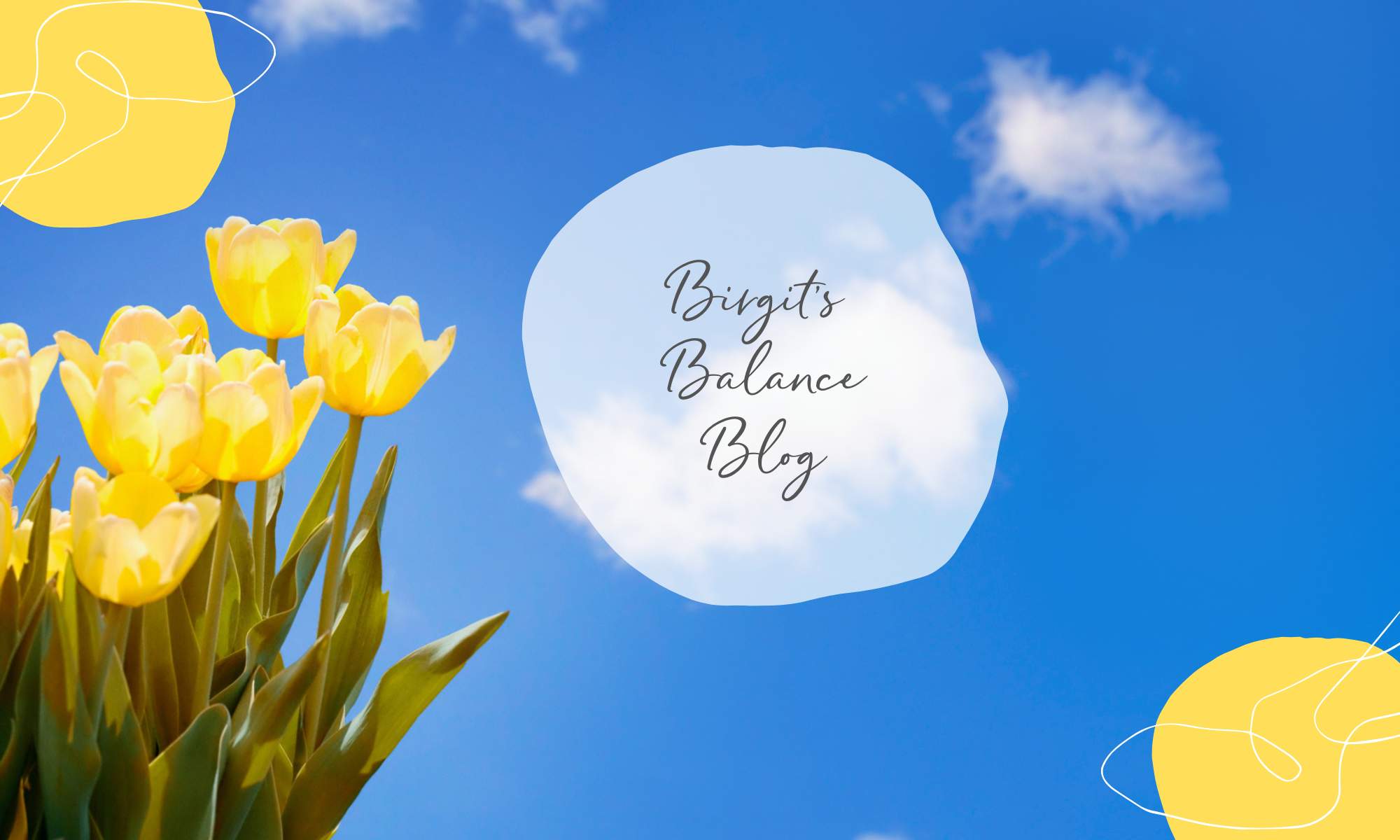
Sleep is like breathing. Both functions are vital for us, both are there as a matter of course (although many a good, restful sleep has been lost in the stress). As the saying goes, “it deprived me of sleep”) – and both are often underestimated in their effect on our well-being and health.
Sleep in particular helps our mind to process what we have experienced, to “store” knowledge and to create new connections. And for our body it is essential for regeneration.
How well do you listen to your body’s signals? When you are tired and have the chance, do you take a nap? Or go to bed earlier? Or do you sometimes ignore tiredness because you want to do that one more thing? Do you know the phenomenon of craving sweets when you get tired? Do you reach for the chocolate or the bed?
It’s clear that sleep and stress are connected. If we have too much stress and don’t manage to switch off or get away from it, we often have trouble sleeping. (For example, I have the feeling that the first thing I wake up in the morning is my head. Eyes open and bam, I have the To Do list in my head. I like to say “my processor is already running before I have booted up my body”). Less sleep, on the other hand, has a negative effect on our stress tolerance – we lose our composure more quickly.
But what can I do to break this cycle? Let’s answer a few basic questions:
What are the consequences of too little sleep?
- Poorer brain capacity – expressed in less ability to concentrate and less creativity
- Faster ageing process
- Weight gain because of increased appetite (malaise and lack of energy caused by too little sleep is compensated for by increased appetite; this is promoted by the hormone ghrelin, which is responsible for our feeling of hunger)
- Deterioration of blood sugar levels and risk of high blood pressure
- Weakened immune system – more frequent illnesses
- States of exhaustion
- Increased risk of burnout
- How much sleep do we need?
Scientific studies generally speak of 7-8 hours. It has also been proven that less than six hours of sleep per night can lead to exhaustion in the long run. The best way to find out how much sleep you need is to take a few days off or go on holiday. Follow your body’s signals and go to bed when you get tired. Make sure you have created the conditions for a good night’s sleep (see below) and don’t set an alarm. Observe when you wake up on your own the next day and feel ready to get up. After a few days you will notice that it is always a similar number of hours – your personal sleep need.
What contributes to good sleep?
How well you sleep depends on many different factors, of course, and is determined throughout the day. Basically, a healthy lifestyle (exercise, healthy food, plenty to drink and breaks throughout the day) is very beneficial. You can also pay attention to the following:
- Breaks: Allow yourself breaks throughout the day, for example between different blocks of tasks.
- Exercise: This can range from a walk to yoga or stretching sessions to a hearty exercise session. Make sure, however, that there are a few hours between the end of your exercise session and bedtime.
- Fresh air: Do you remember your childhood days? Outdoors all day and tired as hell in the evening? Fresh air makes you tired – so make sure you get some fresh air outdoors at least once a day for about 30 minutes.
- Bedroom climate: Air out the room before you go to bed or sleep with the window open; make sure the room temperature is between 16 and 18 degrees Celsius and darken the room well.
- Good mattress: How old is your mattress? Get advice and buy a mattress that suits your needs. A good investment!
- Switch off: After the thriller or the last activity on the screen, there should be some time to “switch off”. Maybe you even establish a …
- “Calm down ritual”: Make yourself a cup of tea and let the day pass in review on the couch; perhaps you would also like to take a warm bath or a hot shower and then snuggle up in a blanket? Or write down what you are grateful for and what your insights of the day were…. whatever is appropriate for you to end the day on.
- Natural sleep aids: The scent of lavender in the bedroom or a calming tea often work wonders! Perhaps there is also something you know makes you sleepy? (For example, I regularly fall asleep reading books.
- Well digested: Make sure you eat light meals in the evening (few carbohydrates, no salads or raw vegetables) and that there are about 3 hours between your last meal and bedtime.
- Counting sheep: When you are lying awake in bed, count your breaths instead of sheep or try autogenic training or a body scan.
- Flashes of inspiration: And if thoughts or ideas still keep you awake, it’s best to put a notepad next to your bed. Writing down what goes through your mind calms your mind and empties your “working memory”.
- Airplane mode: It is best not to take your mobile phone into the bedroom at all. If it is unavoidable, switch it to flight mode. This makes it easier to resist the temptation to check and read messages. Also, make sure you have activated the blue light filter on your phone screen.
And finally, a few tips for napping during the day:
A so-called “power nap” should not last longer than 20-30 minutes – that is, it should end before you fall into a deep sleep. You can achieve this in different ways:
- Espresso: Drink an espresso before lying down for a power nap. This usually takes effect within 20-30 minutes and should then wake you up.
- Key ring: Sit down in an armchair to take a nap, let one of your hands hang over the backrest and take a bunch of keys in this hand. As soon as you go into deep sleep, your hand will open, the bunch of keys will fall to the floor and you will be awake.
- Alarm clock: also works, of course.
Here’s to a good night’s sleep and energized days!
Sleep well,
Birgit
